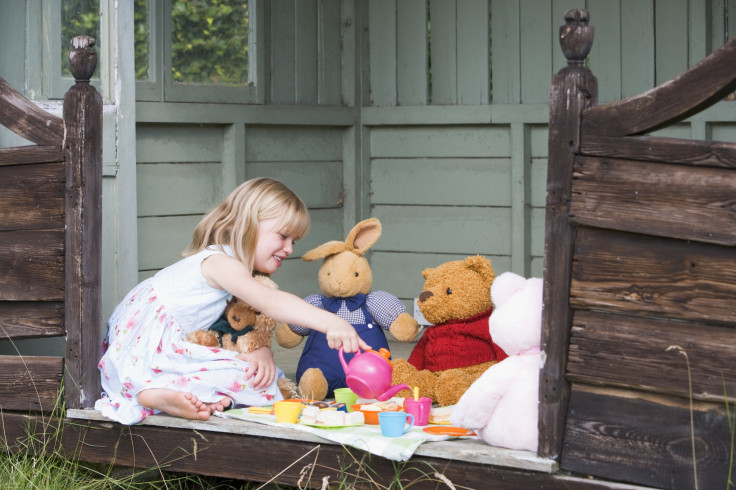Brothers And Sisters And Nobody: The Science Behind Their Personality And Health

The only child is often subject to others' misperceptions about his personality, much like the middle child. But like most paradoxical comparisons, science has the ability to break down the personality and health of what it’s like to be an only child compared to taking on the world with a sibling or two. Does a sibling, or lack of one, really change who we are?
Today, one in five American families has only just one child — that’s twice as many as there were just 30 years ago. The reason is multifaceted, but one of the most compelling arguments to why mothers are stopping after their firstborn is the cost aspect. No one wants to place a price tag on a child, but for families with an income of $60,000 a year, each child costs more than $250,000 by the time he or she turns 18, according to the U.S. Department of Labor. That’s not counting college tuition, which has grown exponentially since our parent’s generation.
"Twenty percent of the family population is one child," said Psychologist Susan Newman, author of the book Parenting an Only Child. "In the major metropolitan cities, like New York and Los Angeles, that number is 30 percent. People are having children later, which leaves less time for having the second child. Housing is expensive. The divorce rate hovers at 50 percent. Often both parents are working, and child care is a factor."
Psychologists agree, there can be a guilt associated with stopping at one child. Regardless if it’s the parent’s choice or not, an only child will grow up without a sibling for a playmate, confidant, competitor, and biological best friend. But as families with only children quietly grow into the new modern trend in birth rate, more studies are finding only children are as well-adjusted as the rest of the sibling world.
The Science Behind Being The Only One
Only child syndrome: The stereotype paints a lonely, spoiled, bossy, and maladjusted temperamental little human. The term dates back to 1896. Psychologist Granville Stanley Hall wrote a research paper on the psyche of children raised without siblings, and it has stood the test of time as one of the greatest myths. He went as far as concluding that being an only child was a “disease in itself.” Another who studied his work wrote, “It would be best for the individual and the race if there were no only children.” Whatever studies were to follow Hall’s needed to be compelling enough to erase a mass perception and belied stereotype. The prejudice still retains most of its power today.
You’ve experienced the bias before. Whenever you tell someone you’re an only child, or if you’re guilty of this quick judgment call yourself, the listener begins to psychoanalyze with the intensity of a PhD candidate and answers, “You don’t act like an only child. I would’ve never guessed it,” or strangely offensive, “Yeah, I could see that. It makes sense.” Somehow they’ve either perversely complimented or insulted you — because being an only child is tainted with a negative commonality viewed as socially subpar.
There’s also the strange but common misconception that a child becomes so innately desperate to find their familial childhood partner, they create imaginary friends. It’s as if people postulate only children grew up as bored, friendless recluses subjected to bouncing balls against a wall in a dark room or doomed to play their video game’s “one player” mode forever.
According to Dr. Jerome Singer, a professor of psychology at Yale University, there is no scientific evidence they make up friends to fill a void that may not even be there in the first place. Whether a child has zero or five siblings, anyone can feel the need to create imaginary friends at some point in their childhood, and 65 percent of them do.
When it comes to adulthood, it is more often than not every child’s responsibility to take care of their parents at the end of their lives, from health care to the funeral costs. Usually in families with more than one child, the sibling who lives the closest to her elderly parents is the one who takes on the role of caretaker. However, only children are held accountable in a way children with siblings aren’t. Siblings can share the time consuming and sometimes financially tolling obligation to make sure Mom and Dad are comfortable in their closing years. The only child makes the decisions on his own, if not with his spouse by his side for support.
Speaking of pressure, the only child has no one to share it with, so he shoulders a heavier burden of being the only one in the spotlight. Not every child wants to be the center of attention, whether he has siblings or not. Parents tend to hyper-focus on their one child instead of the two, three, or even four children they have to divide their time between. This is where the spoiled stereotype comes into play. With or without siblings, children can be spoiled depending upon the parent’s approach to balancing wants and needs. What they probably won’t need, though, is a tutor, because it turns out the more brothers and sisters a child has, the worse he tends to do in school.
Parents who have more than one child are able to compare varying personalities despite a similar upbringing. Understanding the fundamentals of what builds a child’s personality requires one to revisit the inexhaustible argument of nature versus nurture. Most twin studies have come to the conclusion that it is a combination of both, and in that case, siblings would only provide a smaller impression on overall upbringing. Everything, however, is circumstantial when it comes to how much of an effect a brother, sister, or lack thereof, has on an individual.



























